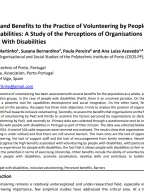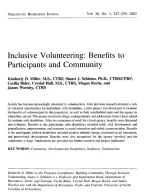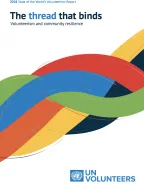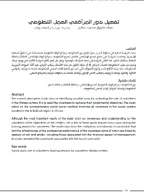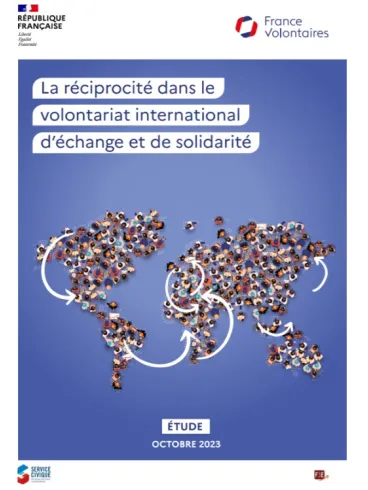
Fast read
This study highlights the effects of reciprocity in international volunteering, drawing on data collected from international, global South volunteers hosted in France.
Synthesis
- Reciprocity in international volunteering can act as a lever for promoting mobility and solidarity. This cross-analysis of the effects on the career paths of young people who left their countries to volunteer in France shows positive changes and major transformations both at a personal and professional level, as well as in terms of commitment. These effects are described by the volunteers themselves and corroborated by their tutors who observe significant progress between the time international volunteers arrive and the time they leave.
- In young people’s home territories and associations, the study highlighted the emergence of new leaders. On their return from France, international volunteers get involved in the associations in which they were active before they left (50% of them) or in new associations (65% of them, some of them even setting up new associations). This commitment often takes on a new dimension, with young people reinvesting the skills they acquired during their experience and becoming driving forces in taking on new responsibilities.
- The particularity of hosting international volunteers in France – as opposed to sending them – lies particularly in the effects generated on the people concerned, organizations and territories in France, such as deconstruction of prejudices, cultural enrichment, questioning one’s own practices in order to improve them, remobilization of teams, etc.
- However, these effects are also limited by the reality of flows: the number of volunteers hosted remains small and the practice of hosting is fragile because it depends on the personal commitment of a limited number of individuals and on external funding.













